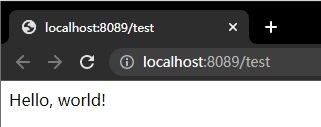写在开始
此系列将以我独立开发的一个 SpringBoot 项目为基础,跟随我的开发过程,记录我在开发过程中的步骤及问题
项目地址 https://github.com/BeiyanLuansheng/OES
官方手册 Spring Guides
官方Demo Spring Projects
项目初始
创建名为OES的空maven工程,新建四个子模块,使项目目录结构如下(子模块以oes-start为例)
1
2
3
4
5
6
7
8
9
10
11
12
13
14
- OES
├── oes-biz [系统功能实现]
├── oes-common [通用工具类]
├── oes-start [启动类及网关]
| ├── src [源文件]
| | ├── main [工程主文件]
| | | ├── java [代码]
| | | | └── org.oes.start
| | | | └── Application.java [启动类]
| | | └── resources [资源文件]
| | └── test [测试文件]
| ├── target [编译文件, IDE运行时自动创建]
| └── pom.xml
└── pom.xml
此时 OES 的 pom.xml 文件如下
1
2
3
4
5
6
7
8
9
10
11
12
13
14
15
16
17
18
19
20
21
22
<?xml version="1.0" encoding="UTF-8"?>
<project xmlns="http://maven.apache.org/POM/4.0.0"
xmlns:xsi="http://www.w3.org/2001/XMLSchema-instance"
xsi:schemaLocation="http://maven.apache.org/POM/4.0.0 http://maven.apache.org/xsd/maven-4.0.0.xsd">
<modelVersion>4.0.0</modelVersion>
<groupId>org</groupId>
<artifactId>OES</artifactId>
<packaging>pom</packaging>
<version>1.0.0-SNAPSHOT</version>
<modules>
<module>oes-biz</module>
<module>oes-common</module>
<module>oes-start</module>
</modules>
<properties>
<maven.compiler.source>11</maven.compiler.source>
<maven.compiler.target>11</maven.compiler.target>
</properties>
</project>
SpringBoot 项目
在 OES 的 pom.xml 文件中继承 SpringBoot
1
2
3
4
5
6
<parent>
<groupId>org.springframework.boot</groupId>
<artifactId>spring-boot-starter-parent</artifactId>
<version>2.5.7</version>
<relativePath/> <!-- lookup parent from repository -->
</parent>
你可以凭借缩进来判断加在了哪一个标签下
再添加maven打包插件
1
2
3
4
5
6
7
8
<build>
<plugins>
<plugin>
<groupId>org.springframework.boot</groupId>
<artifactId>spring-boot-maven-plugin</artifactId>
</plugin>
</plugins>
</build>
在 oes-start 下的 pom.xml 中添加以下内容,以使用 SpringBoot 的基础功能
1
2
3
4
5
6
7
8
9
10
<dependencies>
<dependency>
<groupId>org.springframework.boot</groupId>
<artifactId>spring-boot-starter-actuator</artifactId>
</dependency>
<dependency>
<groupId>org.springframework.boot</groupId>
<artifactId>spring-boot-starter-web</artifactId>
</dependency>
</dependencies>
添加配置
在 resources 目录下新建配置文件 application.yml
application.yml 和 application.properties 可以二选一,效果等同,不过 YML 是树形结构,更直观 如果两各文件同时存在,先加载 YML,后加载的 application.properties 会覆盖 YML 中的配置
1
2
3
4
5
6
7
8
9
10
server:
port: 8089 # tomcat端口号
servlet:
context-path: / # 根路径
encoding: # 编码集设置
force: true
charset: UTF-8
enabled: true
tomcat:
uri-encoding: UTF-8
启动
在 Application.java 中写
1
2
3
4
5
6
7
8
9
10
11
12
import org.springframework.boot.SpringApplication;
import org.springframework.boot.autoconfigure.SpringBootApplication;
import org.springframework.context.annotation.ComponentScan;
@ComponentScan("org.oes")
@SpringBootApplication
public class Application {
public static void main(String[] args) {
SpringApplication.run(Application.class, args);
}
}
注意 @SpringBootApplication 注解仅会扫描当前包(即org.oes.start)下的所有 @Service 等注解
为保证你写在 oes-biz 模块中的 @Service 或 @Component 也能被扫描到,需要手动添加注解 @ComponentScan,后面写上你要扫描的包路径,如果需要扫描多个包,写成 @ComponentScan({"cn.a.b", "com.c.d"}) 的形式
之后你可以在 oes-start 模块中写一个简单的 Controller,如
1
2
3
4
5
6
7
8
9
10
11
12
13
package org.oes.start.controller;
import org.springframework.web.bind.annotation.GetMapping;
import org.springframework.web.bind.annotation.RestController;
@RestController
public class MainController {
@GetMapping("/test")
public String getStr() {
return "Hello, World";
}
}
然后启动项目,访问在 application.yml 中配置好的端口号,如 http://localhost:8089/test
